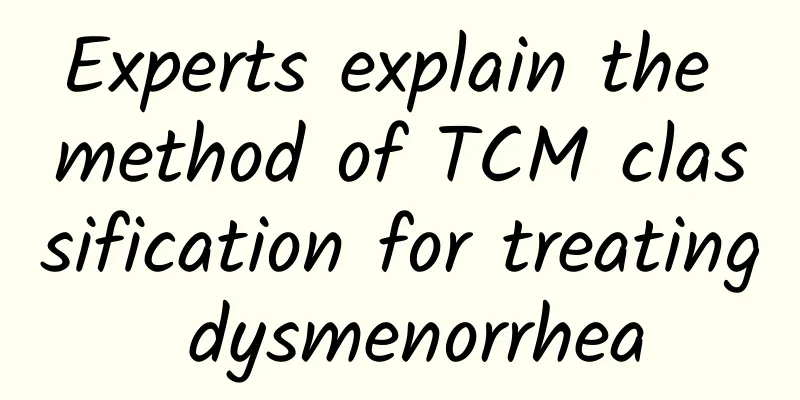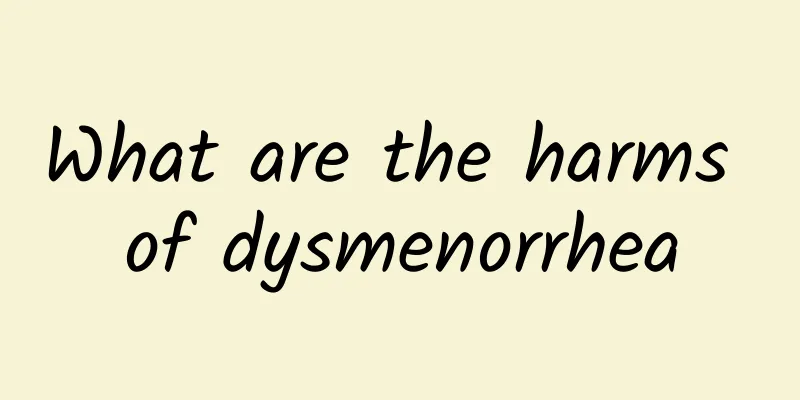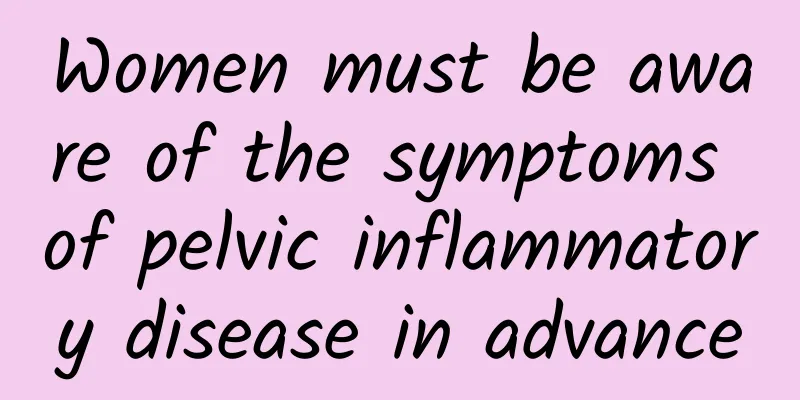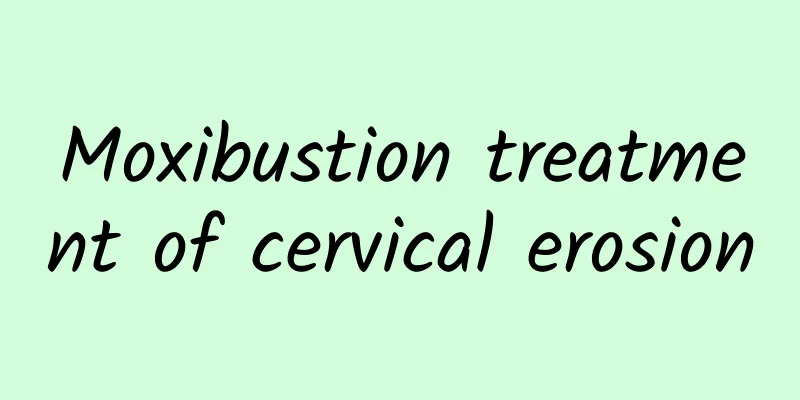Experts explain the method of TCM classification for treating dysmenorrhea

|
Although there are many ways to treat dysmenorrhea in medicine, TCM classification of dysmenorrhea has always been the first choice for many patients with dysmenorrhea. So what are the methods of TCM classification of dysmenorrhea ? Let's talk about the methods of TCM classification of dysmenorrhea. Generally, the common TCM classification methods for treating dysmenorrhea are: Qi stagnation and blood stasis: abdominal distension and pain, nipple tenderness, irritability, scanty menstruation or menstrual irregularities before or during menstruation. This is a treatment for dysmenorrhea. You should take medicine that has the effects of soothing the liver and regulating qi, removing blood stasis and relieving pain. For dietary therapy, you can use motherwort to boil eggs. Qi and blood deficiency: continuous abdominal pain during menstruation, scanty menstruation, light and thin menstruation, fatigue, sallow complexion, poor appetite, loose stools, etc. You should take medicines that have the effects of replenishing qi, blood and relieving pain, such as Wuji Baifeng Pills. Eating more mutton is also a good way to treat dysmenorrhea. Yang deficiency and internal cold: cold pain in the lower abdomen during or after menstruation, light menstruation and scanty flow, accompanied by backache and weak legs, cold hands and feet, and long and clear urine. You should take medicines that warm the meridians and dispel cold, nourish blood and relieve pain. For example, brown sugar ginger soup is very effective in treating dysmenorrhea. Brown sugar has the effects of nourishing blood, dispersing stasis, warming the liver, and dispelling cold, while ginger has the effects of nourishing the middle and dispersing cold, and treating dysmenorrhea. The two medicines can be used together to nourish qi and blood, warm the meridians and activate blood circulation. Liver and kidney deficiency: 1-2 days after the menstruation is over, backache and leg weakness, lower abdominal pain and discomfort, or hot flashes, dizziness and tinnitus, etc. At this time, drugs with kidney-tonifying, liver-nourishing and pain-relieving effects should be taken to treat dysmenorrhea. Or eat more Chuanxiong and Danshen boiled eggs. The above is an introduction to the common methods of TCM classification for treating dysmenorrhea. I believe that everyone has a preliminary understanding of the treatment of dysmenorrhea. If you have any questions, you can contact our online experts, who will give you detailed answers. For more information, please visit the dysmenorrhea disease special topic at http://www..com.cn/fuke/tongjing/ or consult an expert for free. The expert will then give a detailed answer based on the patient's specific situation. |
<<: Experts explain common physical therapies for treating cervical hypertrophy
>>: Experts explain how to properly care for vulvar leukoplakia
Recommend
How to satisfy yourself during menstruation
During menstruation, satisfying yourself is not o...
How to quickly relieve bloating and dysmenorrhea How to quickly relieve bloating and dysmenorrhea
How to quickly relieve flatulence and dysmenorrhe...
What should I do if I have Bartholinitis in my second month of pregnancy?
What should I do if I have Bartholinitis two mont...
It’s time for a New Year’s Eve dinner. Do you know how to eat delicious food and lose weight?
There are a lot of festivals at the end of the ye...
Fight the "waist" monster: 3 steps to measure your waist correctly
On the eve of Father's Day, it's urgent t...
What preventive measures should women take for adnexitis
What preventive measures can women take for adnex...
Menstrual pain, sciatica, headaches: save your own pelvis, exercise your core muscles to avoid crookedness
Save your own pelvis! Return your pelvis to its o...
How can patients with dysmenorrhea regulate themselves before pregnancy? Change their lifestyle habits
Dysmenorrhea is a symptom experienced by many wom...
Is obesity the killer of arthritis? This eliminates pain and rebuilds cartilage without surgery
There is a crackling sound in my knees when I wal...
Obesity is a risk factor for diabetes, and diabetics may increase their risk of cardiovascular disease or kidney disease!
Diabetes is a national disease! According to stat...
What are the treatment guidelines for uterine fibroids?
What are the treatment guidelines for uterine fib...
How should patients with ovarian cysts be examined?
Ovarian cysts are a common gynecological disease....
Hyperprolactinemia regular hospital
How to choose a regular hospital for hyperprolact...
Wang Siping stepped hard on the flywheel in March to get rid of his calves
"Have you noticed? My calves have really got...
Can a woman who is approaching menopause get pregnant?
The chances of pregnancy for women approaching me...









